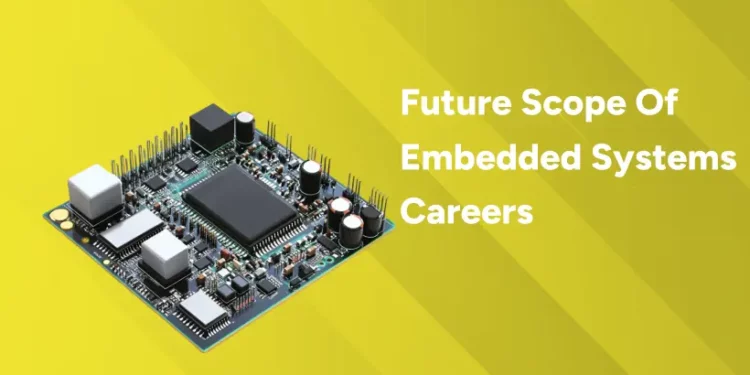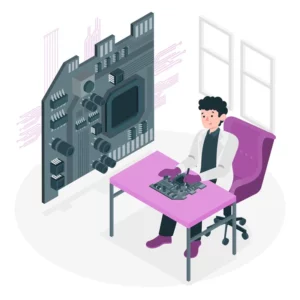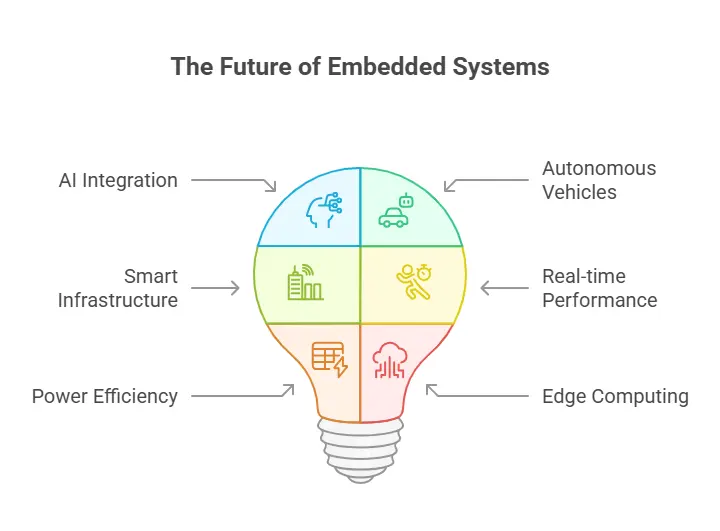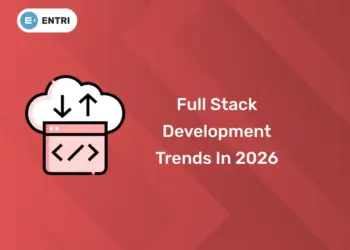Table of Contents
In the age of automation, connectivity, and smart systems, embedded system have become the pillars of support for the technology of the time. From consumer devices and cars to machines and smart health devices, embedded systems are bringing innovation to the daily run of life. With greater intelligence and connectivity in such system, the need for expert embedded engineers is growing at a meteoric pace. If you’re a student or career professional considering embedded systems as a future career path, the next decade is not just bright—it’s booming. In this blog, we’ll explore the market potential, uses, and career opportunities that make embedded systems one of the most promising fields in the next decade.
Market Growth Outlook
The world market for embedded systems is growing quickly, and it’s expected to grow even more over the next twenty years. Recent news reports say:
- Embedded systems will be worth $138.4 billion by 2027, according to MarketsandMarkets. This value is a growth rate of 6.1% per year from 2022 to 2027.
- Grand View Research thinks the market could be worth more than $160 billion by 2030. This is because electronics for cars, factories, and the internet of things are all improving quickly.
- This rise is likely to continue as 5G networks are put in place and new gadgets with AI run them.
This upward trend means that engineers, developers, and system designers who work with embedded technologies will have stable and long-term job possibilities.
Master Embedded Systems and build the smart solutions of tomorrow!
Future Applications of Embedded Systems (2025–2030)
A more connected, smarter era is arriving, and embedded systems will play an even larger role in it all. From 2025 to 2030, they will no longer simply regulate things. They will drive next-wave breakthroughs such as AI, autonomous vehicles, and smart infrastructure. Embedded system will define the technologies of the future because everybody wants them to be fast in real time, consume minimal power, and operate at the edge. Let us explore the most significant ways in which embedded systems will transform how we work, live, and engage with technology in the future.
1. Automotive and Autonomous Vehicles
- Advanced Driver-Assistance Systems (ADAS)
- Battery management of electric vehicles (EV)
- fully autonomous vehicles, including real-time decision algorithms
2. Wearable Technology and Healthcare
- Intelligent diagnostic tools
- Systems for real-time patient monitoring
- Artificial intelligence-capable implanted medical devices
3. Smart Manufacturing and Internet of Things in Industry
- Machine learning and predictive maintenance
- Data collecting in factories in real time
- Programmable logic controllers (PLC) automation
4. Cities and Smart Homes
- Systems of intelligent lighting and temperature control.
- Safety tools and embedded monitoring
- Infrastructure automation—that is, waste management, traffic lights, etc.
5. Aerospace and Defense
- Avionics systems in real time
- In drones, embedded navigation and control
- Safe modes of communication
6. Consumer Electronics
- TVs and cellphones running artificial intelligence
- Home aides like Google Nest and Alexa.
- VR equipment and high-performance gaming consoles
To know more about embedded systems – Download Entri app!
Master Embedded Systems Programming!
Launch your tech career with our Embedded Systems Course in Kerala, designed for hands-on learning and industry readiness.
Know MorePredictions for the future 5 years
The next five years will be critical for embedded systems as they continue to adapt to grow with mounting technology trends and rising industry demands. From smart products to greater interaction with AI and IoT, embedded systems will become more intelligent, more efficient, and more interconnected. Some of the wider trends and predictions that will guide embedded systems careers and uses to 2030 are outlined below.
High demand for cross-disciplinary skills
The demand for professionals with AI, cybersecurity, and cloud computing expertise and for embedded C/C++ professionals will be high.
Embedded AI & Machine Learning
Devices will become smart with intelligence embedded within them, driving the demand for expertise on platforms like TensorFlow Lite and TinyML.
Rise of Open-Source Platforms
Arduino, Raspberry Pi, and ESP32 will continue to dominate amateur development, driving a larger developer community.
More Remote and Edge Processing
Even more data will be processed on-device instead of in the cloud, which will improve latency as well as privacy—especially in IoT environments.
Green and Sustainable Embedded System
Design will prioritize green design and sustainable materials, with climate goals as well as regulation taking the lead.
Wrapping Up
Embedded system are headed for a revolutionary future, not only in security. Embedded technology will always be the force behind the invention as industries move to more smart, more efficient, and more integrated systems. The embedded system professionals will be at the forefront of it all, from powering the next wave of artificial intelligence products to powering remote healthcare to transforming transportation. It is now the perfect time for beginners to skill up, get hands-on with dev boards, and explore opportunities in a diverse range of fields. Embedded systems present a future-proof, diverse career.
Master Embedded Systems Programming!
Launch your tech career with our Embedded Systems Course in Kerala, designed for hands-on learning and industry readiness.
Know MoreFrequently Asked Questions
Is embedded systems a good career choice?
Yes! It offers many job opportunities in growing fields like IoT, robotics, and smart electronics.
Can a fresher get a job in embedded systems?
Yes. With basic programming knowledge, hands-on projects, and training, freshers can easily start their careers.
Can I get into embedded systems without an engineering degree?
Yes. Many professionals start with DIY kits (Arduino, Raspberry Pi) and learn through online courses, certifications, and practical projects.
Are AI and embedded systems related?
Yes. Embedded AI is a growing field where machine learning models are deployed directly on edge devices, enabling real-time decision-making.
What programming languages are essential for embedded systems careers?
C and C++ are the most important. Others include Assembly, Python (MicroPython), Rust, and occasionally Java for higher-level applications.
What industries hire embedded systems engineers?
Major industries include automotive, aerospace, healthcare, consumer electronics, telecommunications, and industrial automation.













